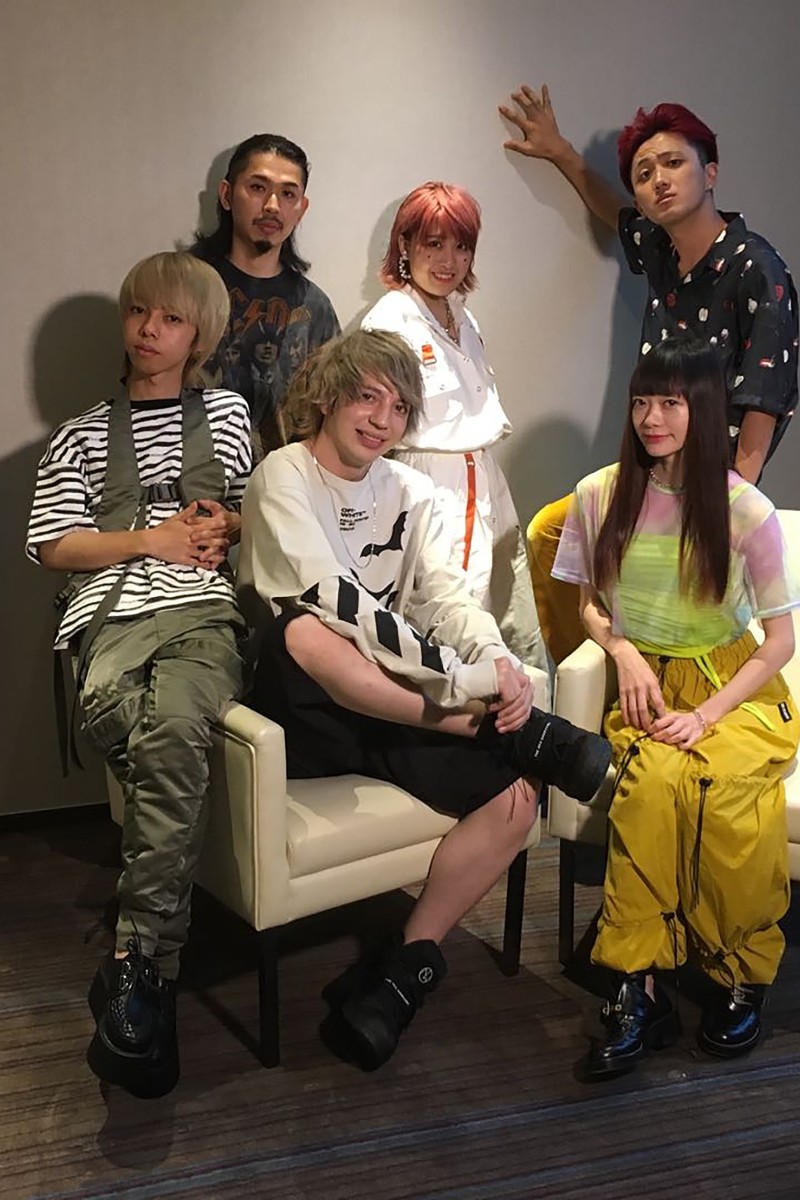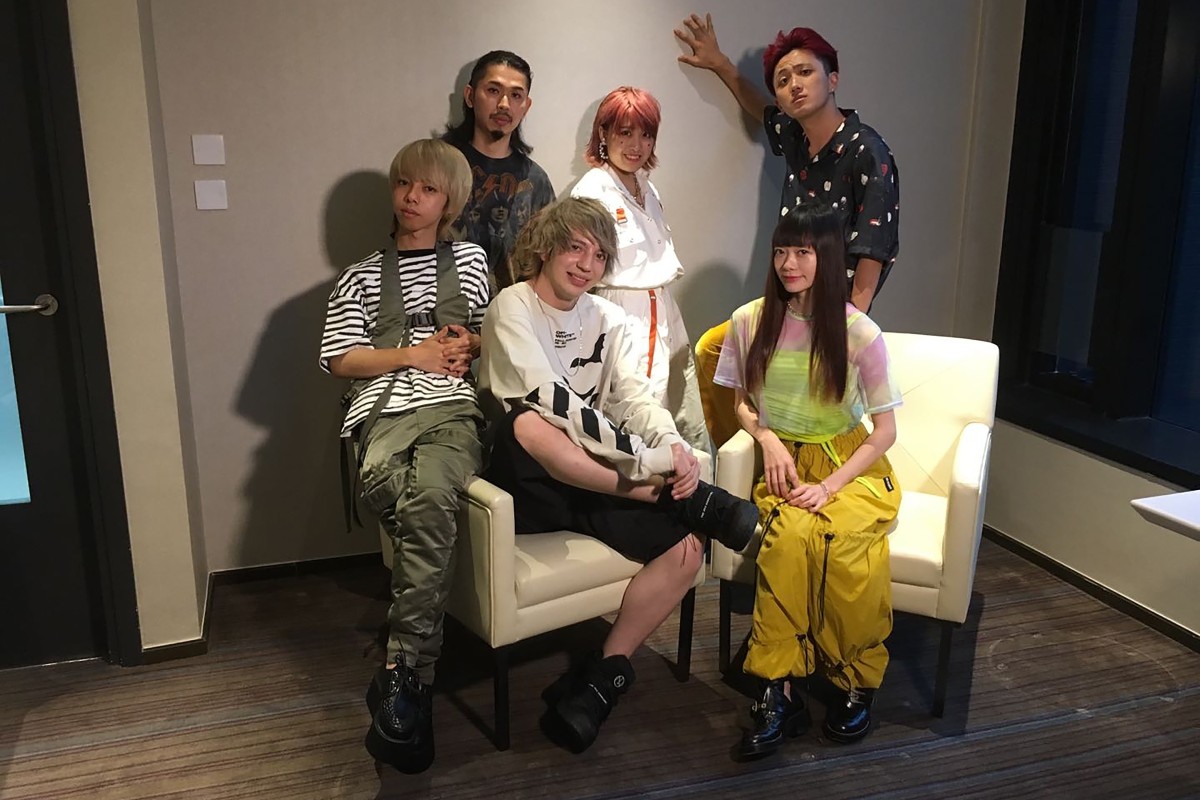
J-rock band AliA on how debut mini-album ‘AliVe’ gives each member a chance to shine
Whether they’re writing songs or rocking out to a Hong Kong crowd, AliA knows everyone deserves a solo sometimes
 The diversity in AliA’s music stems from having so many different personalities in the group.
The diversity in AliA’s music stems from having so many different personalities in the group. When Young Post meets Japanese rock band AliA at their hotel in Kwun Tong, it’s less than 24 hours before they are due to take to the stage. The musicians would later give fans a night to remember at Kitec Music Zone, the second stop on their Asian tour. We asked them what they were most excited about for the show, and what helps them to gel as a group.
Despite being a six-piece, each member of the group – drummer Bob, violinist Rina, bassist Seiya, keyboardist TKT, vocalist Ayame and guitarist Eren Okamura – has a role to play. “We fit together like a puzzle,” says Okamura.
AliA are currently promoting their first mini album AliVE, which they released in February. For a short record, it manages to encompass a wide range of styles and emotions, from uptempo rock songs like Impulse to mellower offerings such as Voice.
But the group say their live shows go beyond the music: everything from the lighting to the transitions between songs has been carefully thought out, and the musicians are excited to let audiences into their world.
The diversity in their sound stems from having so many different personalities in the band. Giving everyone the chance to shine can be challenging, but AliA believe that it ultimately enriches their music.
“Although Ayame has a very nice voice, it’s not about the vocals being very obvious and the bass not being there,” Okamura jokes. He explains that there is no one main character in the band; everyone gets to participate equally. Take, for example, their song Silhouette, in which each member has a solo part.
K-pop superstars BTS to take long-term break from the music scene, their first in six years
“I’ve collaborated with a lot of different people, but I never found the job I wanted ... until finally, last year, I found this band,” says Bob, who has been drumming since he was 10. He says the group has given him the platform to showcase his skills, as well as the chance to travel and perform in front of new crowds.
“There aren’t a lot of violinists in bands,” says Rina. “But I’m like the decoration; the violin works well with many other instruments.”
Similarly, it’s bassist Seiya’s job to blend and enhance the sounds of all the other instruments.
“The job of the bass is to connect melody to melody ... like a bridge,” he says. “If I do badly, it will affect everything.”
“I’m the only one in the group who uses their voice instead of an instrument ... it’s my responsibility to convey the feelings of the lyrics when I sing,” says Ayame. “Even the phrase ‘I like you’ can have many different meanings when sung in different ways.”
She takes the group’s song Voice as an example: it’s a sad piece, but it’s also one about finding hope and looking forward. “In a piece like this, my role is to convert emotions into a language the audience will understand.”
“Playing in a band is like doing a jigsaw puzzle; you have to place everything correctly and put it on the wall,” says Okamura. He believes that’s his job in the band as the frontman – not to take centre stage, but to ensure that everything comes together in the best, and most authentic, way possible.
“Every rock musician hopes to convey themselves in their most honest and unadulterated way.”
